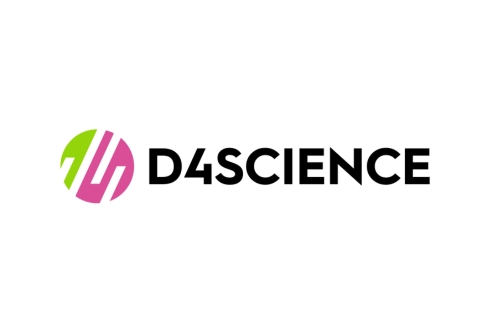D4Science
About
Type & number of data sets
Core Services
D4Science Security
D4Science provides access to a set of services hosted by different organisations in the EU. The connection between the sites is secured through Transport Level Security (TLS), which provides communication security over the computer network.
D4Science ensures privacy and data integrity between two communicating computer applications. In particular, any connection between a client (e.g., a web browser) and a D4Science server has the following properties:
- Private (or secure) connection through the adoption of symmetric cryptography, which encrypts the data transmitted. The keys for this symmetric encryption are uniquely generated for each connection and are based on a shared secret (negotiated at the start of the session). The server and client negotiate the details about which encryption algorithm and cryptographic keys shall be used before data are transmitted. The negotiation of a shared secret is both secure, as it is unavailable to eavesdroppers (and even not to attackers who place themselves in the middle of the connection). For this reason, D4Science is reliable, as no attacker can modify the communications during the negotiation without being detected.
- Authentication of communicating parties happens by using public-key cryptography. This authentication can be made optional on the client’s side; however, it is ensured on the server’s side.
- Integrity of the connection is ensured as each information transmitted is linked to a message authentication code to prevent undetected loss or alteration of the data during the transmission.
- Forward secrecy ensures that a future disclosure of encryption keys cannot be applied to decrypt any TLS communications recorded in the past
Function in Blue-Cloud
|
VRE Management |
Service to enable authorized users (i.e. VRE Managers) to dynamically create VLabs and manage their users. VRE Managers can (i) authorize users to access VLabs, (ii) assign or withdraw roles to users, (iii) remove users, and (iv) send communications to the current users. |
|
Collaboration Framework |
Set of social tools to share data, updates and messages with others and to keep abreast of new data, prospects, services, users. |
|
Workspace |
Service to enable every user to store and organise the information objects he/she is interested in working with. In addition to that, the user is allowed to collaborate with other users by sharing objects and messages. 100 GB storage volume is guaranteed to every user. |
|
Secure File Sharing and Storage |
Service to enable secure and controlled file sharing. |
|
Accounting Framework |
Service enabling accounting resource usage and usage control via quota mechanisms. |
|
Data Analytics Framework |
A set of data analytics services including: (i) the DataMiner engine (a rich array of ready to use analytical methods ranging from data clustering methods to geospatial data analytics, occurrence data management, and species distribution maps generation); (ii) the Software and Algorithms Importer (SAI) (an interface allowing any user to easily and quickly import scripts into DataMiner); (iii) the RStudio suite allowing its users to perform online statistical analyses with R; (iv) the JupyterHub, a web-based interactive development environment for Jupyter notebooks, code, and data. It allows users to configure and arrange the user interface to support a wide range of workflows in data science, scientific computing, and machine learning. |
|
SDI |
The SDI (Spatial Data Infrastructure) provides users with the capability to store, discover, access, and manage vectoral and raster georeferenced datasets. The SDI exploits the following technologies: GeoServer equipped with PostgreSQL and PostGIS, GeoNetwork, Thredds. All the exploited technologies are fully integrated and deployed to ensure fault-tolerance, load-balancing, controlled and secure access, monitoring and accounting. |
|
Publishing Framework |
The Publishing Framework includes a set of services and components enabling their users to document and make “public” (made available online) any generated product. Its primary component is the VRE Data Catalogue. The VRE Data Catalogue service is a catalogue service built on open-source technology for data catalogues (CKAN ckan.org), but extended to (a) be integrated with D4Science services, (b) support a rich, community-defined, and extensible set of catalogue item typologies, and (c) manage publications for each VLab and automatic integration at Blue-Cloud VRE. |
Website: D4Science.org

